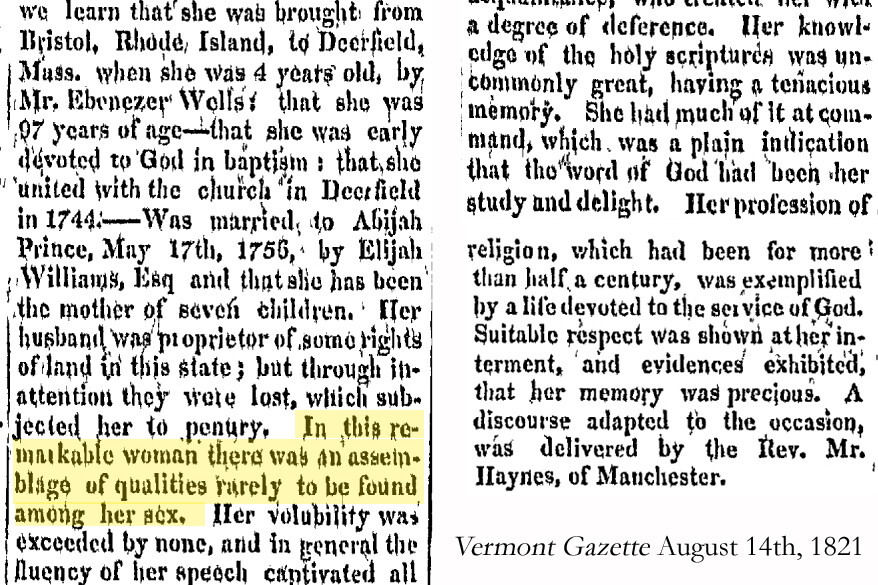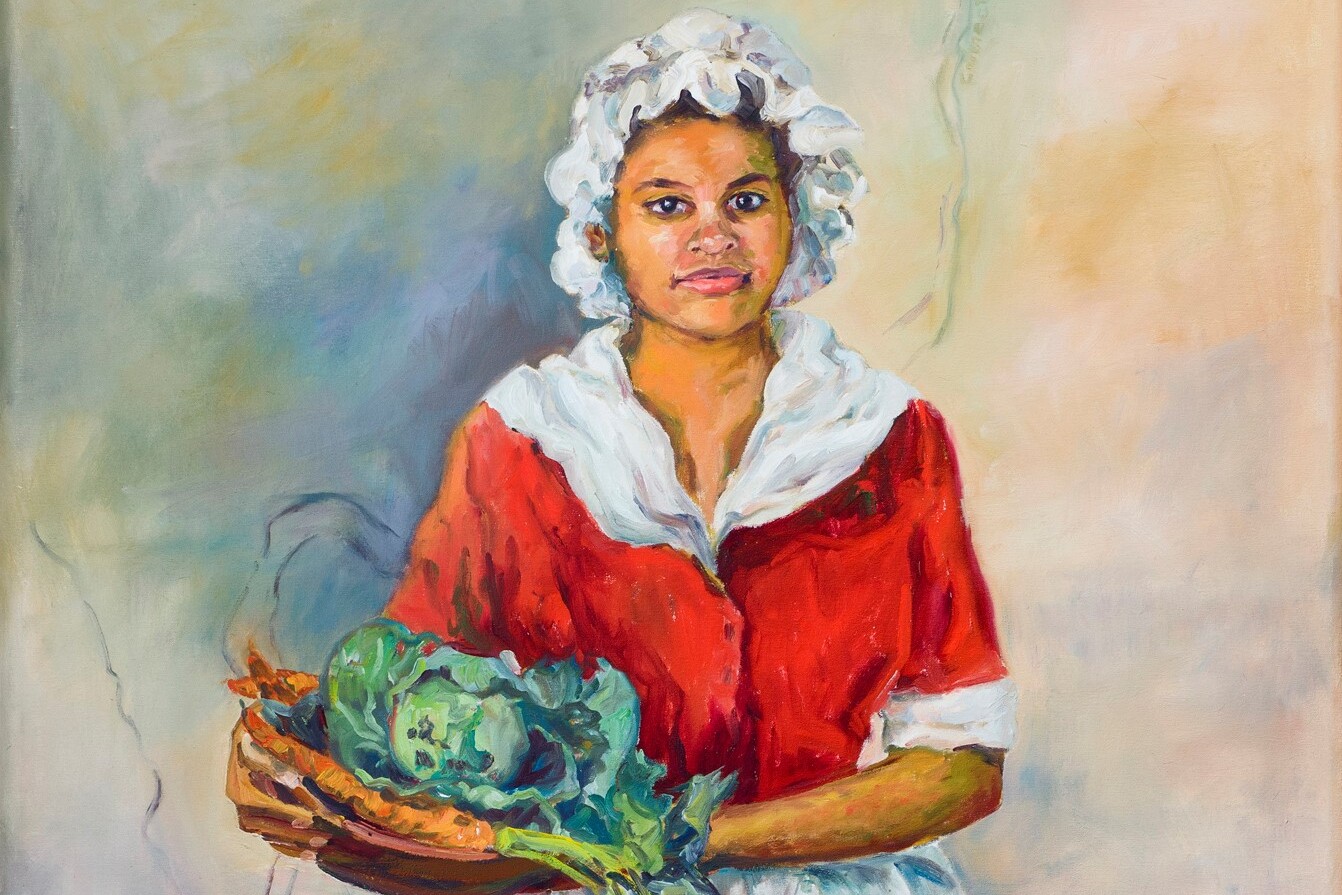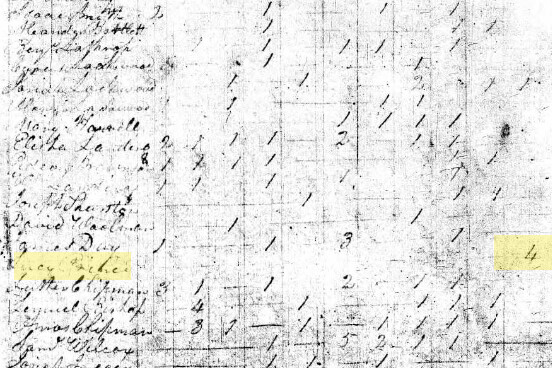Lucy Terry Prince
What made Lucy Terry Prince’s obituary so unusual?
Lucy Terry Prince died in 1821. Her obituary(a notice of a person’s death, usually including information about their life) appeared in the August 14, 1821 issue of the Vermont Gazette newspaper. The author wrote that she was a “remarkable woman” with rare(uncommon) qualities. At that time, newspaper obituaries were usually short. Lucy Terry Prince’s obituary was long and said many good things about her intelligence and talents. This was unusual for two reasons: she was a woman, and she was Black.
In the 1800s, society thought that white men were more important than Black people and women. What did Lucy Terry Prince do in her lifetime to be called a remarkable woman in the newspaper?
White slave traders kidnapped Lucy Terry as a baby from Africa in the 1730s. She lived as an enslaved person in Rhode Island and Deerfield, Massachusetts.
In Massachusetts, several community members and friends died in a French-led Abenaki raid(an attack) in 1746. Lucy Terry created a poem about the raid. This poem, called The Bars Fight, was meant to be shared out loud. It was published about 100 years later. This poem made Lucy Terry America’s first published African American poet. Terry was well known for being intelligent and gifted with language.
Lucy Terry married a Black man named Abijah Prince around 1750. He was no longer enslaved and helped Lucy Terry Prince gain her freedom. Together, they had six children. The family moved to farmland in Guilford, Vermont, in 1775.
In Guilford, the Princes had racist neighbors. The neighbors tore down their fences and destroyed their crops. Lucy Terry Prince argued her family’s case before the Governor of Vermont in 1785. She impressed the Council with her skilled speech and "captivated(to attract and hold someone’s attention) all around her.”
The Prince family won their case, but that did not stop the abuse. Later, a mob led by the neighbor burned the Prince’s hay and harmed their farmhand. Vermont courts found the mob guilty. But the damage to the farm was already done. After her husband’s death in 1794, Lucy Terry Prince left Guilford.
Prince and some of her children moved to Sunderland, Vermont. Her husband bought land there many years earlier. To claim the land, they argued in the Vermont Supreme Court and won. In Prince’s old age, many would visit her home to hear her speak and share stories. When she died in 1821, she was a well-loved and respected member of the Sunderland community.
Thinking About History
Historians ask questions to think deeply about history.
Do you think Lucy Terry Prince got all the recognition she deserved in her lifetime? Why or why not?
Learn More
Follow the links below to explore related topics.
Explore the Vermont Black History Database to learn more about Black Vermonters
Read the article Lucy Terry Prince: Forgotten Heroine from Green Mountaineer Magazine
Learn more about African Americans in Early Rural New England
Listen to the podcast Princes and Free Men from Before Your Time
Copy and paste this citation to show where you did your research.
Vermont Historical Society. "Lucy Terry Prince." Vermont History Explorer. Accessed January 27, 2026. https://vermonthistoryexplorer.org/lucy-terry-prince


